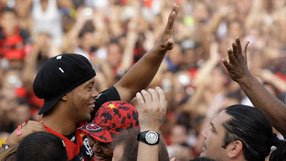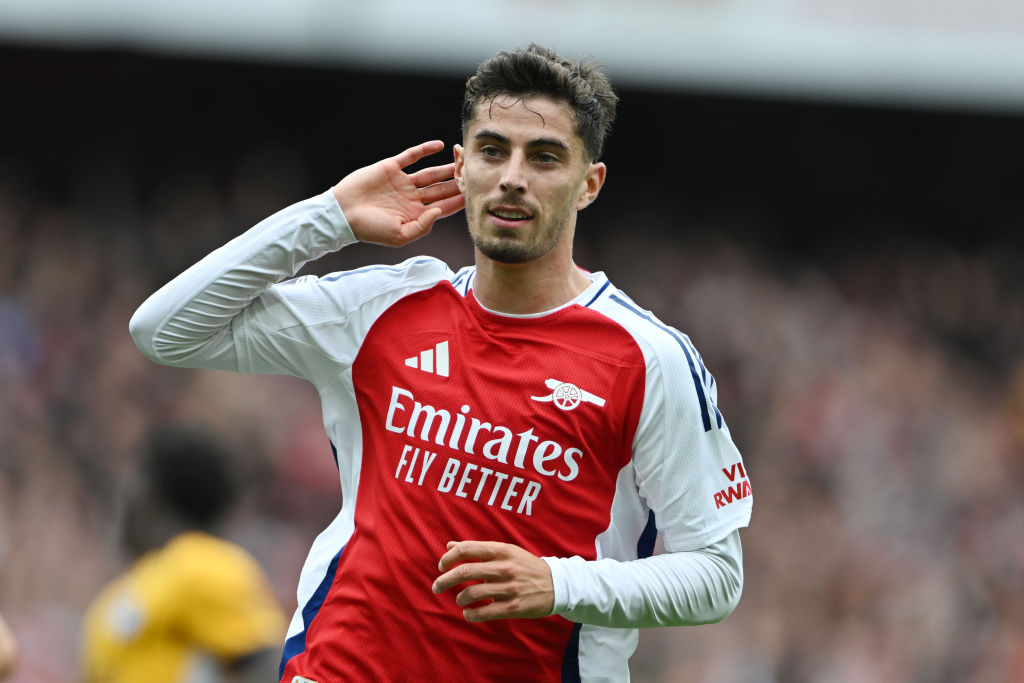Europe's woes lure Brazilians back home
RIO DE JANEIRO - Brazilians, long the great nomads of global soccer, are being lured home as European clubs struggle financially and local teams backed by a booming economy gain the clout to attract big names like Ronaldinho.

The 30-year-old two-time World Player of The Year left AC Milan this month and signed with Rio de Janeiro's Flamengo, becoming the latest in a string of homecomings in the past few years including big names such as Ronaldo, Roberto Carlos, Fred and Elano.
National team captain Robinho and striker Adriano also returned for short stints.
Most of those high-profile returnees are in the sunset of their careers, leading one Spanish sports newspaper to call Brazil the new "elephants' graveyard" of world soccer.
Many returning players, including Ronaldinho, aim to better catch the eye of national team coach Mano Menezes ahead of the World Cup in Brazil in 2014.
But the trend also reflects a broader shift in economic power as Europe stagnates and Brazil's once crisis-prone economy goes from strength to strength.
Its currency has doubled in value against the dollar since 2003, reducing the allure of foreign salaries that have pulled Brazil's famously skilled players to distant fields from the Far East to the Faroe Islands.
Meanwhile, many European clubs are struggling with high debts and weak revenues.
The best features, fun and footballing quizzes, straight to your inbox every week.
"Brazilian clubs have to adapt to a new reality," said Mauricio Assumpcao, president of Rio's Botafogo club.
"It's changed and I think it's changed for good because I don't see how the European market can return to buying the number of players that it used to."
The number of players exported from Brazil fell 14 percent to 1,017 in 2009 while imports rose 7 percent to 707 - more than double the number in 2006 - according to the Brazil Football Confederation, the national football authority.
Club revenues in Brazil's top league rose an average of 12 percent in the 2008-09 period, compared to 4 percent in Europe's top five leagues, a study by Spanish sports marketing firm Prime Time Sport showed last year.
"The European football economy is not as wealthy as it used to be. The easy call for Brazilian clubs of sending their players over there is not as easy as it used to be," said Esteve Calzada, chief executive of Prime Time Sport.
At the same time, growing revenues from television rights have boosted Brazilian clubs' wealth and enabled them to raise their transfer budgets and wage bills, Calzada said.
"I've been involved in discussions of several potential transfers from Brazil to Europe and some of them did not happen because the players in Brazil already had a very good salary."
NEYMAR BREAKTHROUGH
Brazilian fans have long bemoaned the lack of funds and poor administration at their clubs that have made talented young players easy pickings for rich European teams.
Many of those problems persist. Teams suffer from high turnover of players and coaches, and often lack professional financial management.
Still, a big sign the tide could be turning came last year when Santos, the team of the great Pele, managed to fend off a reported 25 million pou
